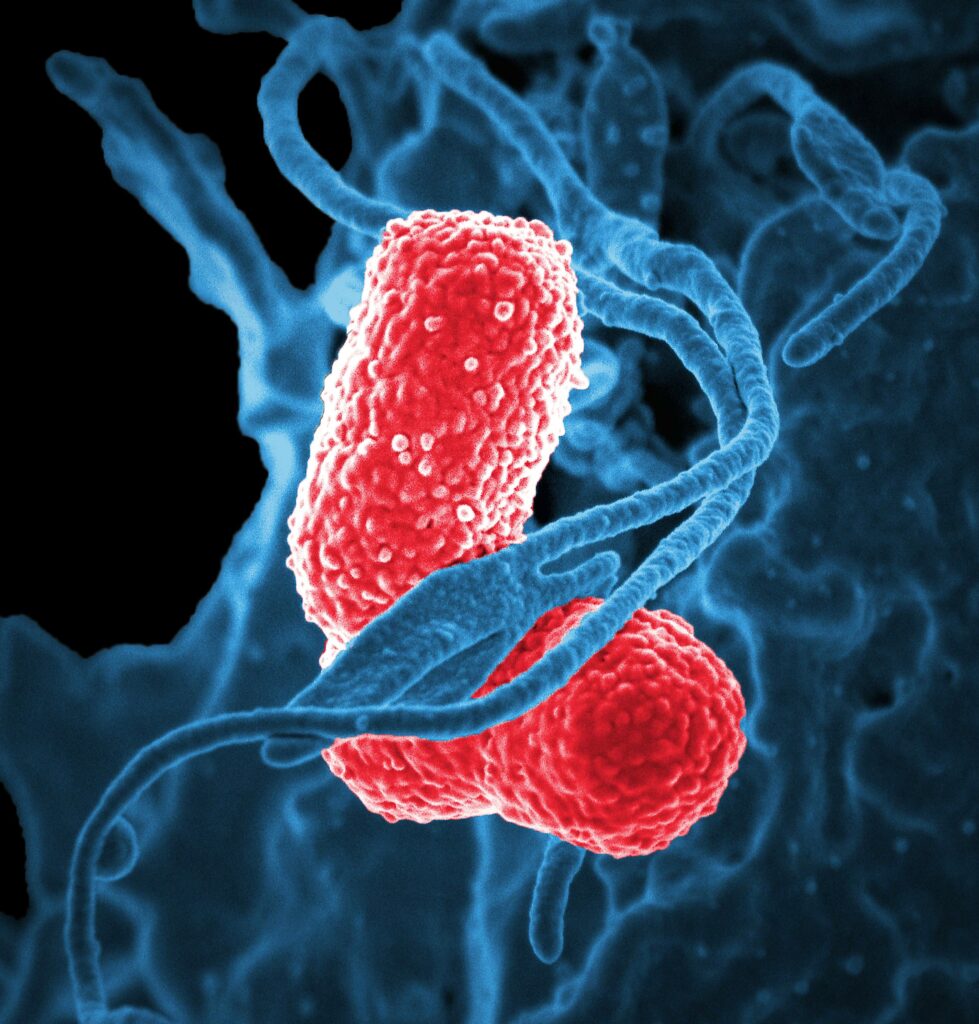Pneumonia is an infection of the respiratory system, resulting in inflammation of the alveoli, or air sacs, within your lungs. This causes symptoms like coughing, breathing problems, fatigue, a fever and more.
Here at Simbec-Orion, we bring five decades of clinical research expertise, focused on rare diseases and oncology.
What is Pneumonia?
As a respiratory illness, pneumonia typically affects the lungs, and therefore your body’s ability to absorb the nutrients it needs from the air. It can be caused by viral, bacterial or fungal infection.
Pneumonia can be a serious condition, depending on multiple factors such as cause, and the patient’s overall health and age. Children and those over 65 are the most at risk of serious illness, alongside those with chronic health conditions or a compromised immune system.
What are the Symptoms of Pneumonia?
- Coughing: Pneumonia is a respiratory illness that typically results in coughing, as your body’s reflex attempts to clear mucus buildup.
- Fever & chills: Your body may instigate a fever in an effort to kill the virus or bacteria causing the infection.
- Fatigue: Pneumonia affects your body’s ability to absorb oxygen into the bloodstream, so your body will be operating at lower energy levels.
- Breathing difficulties: The illness can also cause shortness of breath due to lack of oxygen, which can also result in rapid breathing as your body attempts to catch up.
- Chest pain: Inflammation of the air sacs within your lungs can cause pain when breathing deeply or coughing.
- Loss of appetite: As your body tries to fight the infection, it’s common to lose your appetite, despite the need for more fuel for your body.
- Nausea: Feeling and being sick can be a common symptom of pneumonia, especially in younger children who may have more sensitive digestive systems.
- Confusion: In older patients, confusion can present as a symptom of pneumonia as the brain directs energy to fight the infection.
Types of Pneumonia
Pneumonia is typically diagnosed based on its cause, as this will define which treatment method is best to bring you back to health. Here are some of the most common types of Pneumonia:
Bacterial Pneumonia
Bacterial infection is the most common type of pneumonia in adults. It is considered ‘community-acquired’ meaning it has been passed from someone else not in a hospital or care facility.
If someone with pneumonia coughs or sneezes, bacteria-filled droplets enter the air and can be inhaled. Bacterial pneumonia typically results in:
- A thick mucosal cough
- Fever
- Tiredness and fatigue
- Breathing difficulties
- Chest pain
Bacterial pneumonia is treated with antibiotics, which can vary depending on the type of bacteria that has caused the infection. This is typically defined during the initial diagnosis of bacterial infection.
If the infection is more severe, additional treatment may be required, such as:
- Fluids delivered intravenously
- Oxygen or breathing assistance
- A longer or more powerful run of antibiotics
Walking Pneumonia
A bacterial infection that is less severe may be referred to as ‘walking pneumonia’. This is when symptoms are very mild, to a point where they may not be noticed or shrugged off as just a cough. Symptoms include:
- Cough
- Headache
- Mild fever
- Chills
Walking pneumonia is also treated with antibiotics, though typically through a shorter run. The cough typically lasts longer as the respiratory system heals.
Viral Pneumonia
After bacterial infection, viruses are the next most common cause of pneumonia. Many types of virus can result in viral pneumonia, including COVID-19 and other common cold and flu viruses. Symptoms typically include:
- Mucosal cough
- Sneezing
- Fever
- Chills
- Fatigue and aches
Treatment for viral pneumonia does not involve antibiotics, as these will have no effect on the virus. Treatment typically involves reducing or managing symptoms until your body can defeat the virus. These can include:
- Breathing support (if you have an additional condition such as asthma)
- Fluids or medication to reduce mucus buildup
- Ibuprofen or other painkillers
- Recommended increased intake of calories to help your body fight the infection
Between January and August 2020, around 28% of all COVID-19 related deaths were due to pneumonia. Source: ONS
Fungal Pneumonia
Pneumonia caused by fungal infection is relatively rare compared to bacterial and viral infections. However, there is an increased risk for those with a compromised immune system caused by previous illness, surgery, trauma or cancer treatments. Symptoms include:
- Coughing
- Fever
- Breathing difficulties
Those who work in environments exposed to fungal spores have an increased risk of fungal pneumonia infection. These environments include:
- Farms where animal droppings are present
- Gardens and landscaped areas where soil exposure is high
- Construction or military sites where dust exposure is high
Fungal pneumonia is typically treated with antifungal medication defined by the type of pathogen that has caused the infection.
How Pneumonia Can Affect Everyday Life
Pneumonia can have a dramatic effect on everyday life. Symptoms like fatigue, weakness and headaches can impact your ability to do everyday tasks, while coughing and sneezing make it difficult to be around others for fear of spreading the infection.
For those with additional conditions, pneumonia symptoms can be very debilitating. Those with existing respiratory conditions can suffer significantly, affecting their breathing to a point where everyday life becomes very difficult.
In some cases of pneumonia, symptoms can be very mild. Referred to as ‘walking pneumonia’, certain cases allow patients to continue everyday activities with only mild symptoms.
World Pneumonia Day 2025
In 2025, World Pneumonia Day falls on 12th November. This provides a platform for the sharing of pneumonia awareness, and to draw attention to the work being done to improve treatments and diagnostic processes.
World Pneumonia Day aims to raise awareness of the impact of the illness on patients, especially those at greater risk.
How Clinical Trials Advance Pneumonia Research
Clinical trials often involve trialling medication or treatment methods, with the aim of improving the efficiency and effectiveness of treatment. Trials can also involve preventative measures for those at greater risk, aiming to compensate for immune system or other bodily shortfalls that leave one at higher risk of impactful illness.
As bacteria evolves, they can become more resistant to treatment. Clinical trials aim to research how this evolution sidesteps antibiotic treatment and to identify methods of keeping treatment options effective.
Trials also aim to improve our understanding of pneumonia as an illness. This includes its causes, progression and ultimate effect on the body on different demographics.
Clinical Trials at Simbec-Orion
Simbec-Orion provides complete clinical trial management across many types of trialling types and therapeutic areas. With an approach directed and driven by therapists, we seamlessly integrate with client teams and provide support through the entire clinical development process.
We partner with global organisations to drive effective clinical trials, backed up by fifty years’ experience as a full-service CRO. Get in touch with our team to learn how we can support your next clinical trial.






